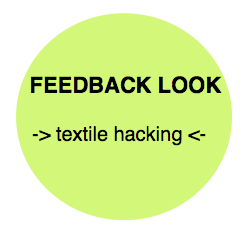Con YouTube, Wikipedia, los motores de búsqueda, los blogs, las wikis, las redes sociales, etc., las personas autoaprendientes tenemos ahora un poder antes inimaginable. ¿Qué necesita saber cualquier grupo de autoaprendientes* para organizarse en torno a su tema de estudio/experimentación?.
The Peeragogy Handbook es un texto creado colectivamente que recoge muchas de las claves para el peer learning.
*Autoaprendientes (=Self-learners): personas que autogestionan sus procesos y herramientas de aprendizaje.
"This project seeks to empower the worldwide population of self-motivated learners who use digital media to connect with each other, to co-construct knowledge, to co-learn. Co-learning is ancient; the capacity for learning by imitation and more, to teach others what we know, is the essence of human culture. We are human because we learn together. Today, however, the advent of digital production media and distribution/communication networks has raised the power of co-learning to a new level."
+ info: http://peeragogy.org/
Call for papers on the philosophy and practice of peer learning
Posted by -orama on 10 de julio de 2011 · Leave a Comment
Peer production has become an important organizing logic for a network-driven era. Social networks like Facebook, LinkedIn, Ning, flickr, YouTube and Wikipedia, are facilitating social connectivity on a massive scale. Developments in ICT networks now define and shape information production and potentially transform the organization of cognitive labor. What happens to learning, to educational institutions, and to society in general, when the balance between formal and informal education is radically reformulated? What happens when informal learning in peer communities becomes the norm, and formal education the adjunct? What does education and learning become when it is marked by openness, co-participation, and a commons of shared educational material? While this emergent trend has not yet fully affected mainstream education, it has become a reality for the millions of citizens and knowledge workers connected together through the Internet. In this special issue of Educational Philosophy and Theory, we will examine the multiple ways in which peer collaboration and peer learning now undergird social, pedagogical and philosophical changes in education. Topics of interest include (but are not limited to):
- Technologies and infrastructures for peer learning
- Open access issues (open access publishing, open textbooks)
- Education as a commons
- p2p learning theories and approaches
- The social dynamics of peer learning
- Open accreditation and other peer recognition practices
- Studies on the relations between informal and formal learning and their mutual adaptation or antagonism
- Attitudes of traditional education practitioners and institutions vis a vis p2p learning challenges; attitudes of peer learners towards traditional educational institutions
- Governance of p2p oriented learning communities and the emergence of participatory practices
- social change induced by p2p learning socialization
Articles for Consideration
Articles for submission should be no more than 6000 words. It is essential that an Abstract (100-200 words) be provided with each article. The author's name and affiliation should appear at the beginning of the article, together with full mailing and email addresses. Abstracts should be sent by email to the editors.
Deadline for Abstracts: September 1, 2011
Deadline for final submission: January 1, 2012
(Via: @mbauwens, P2P Foundation)
Filed under Educación, educación no-formal, learning, non-formal learning, P2P, peer to peer, Procomún







